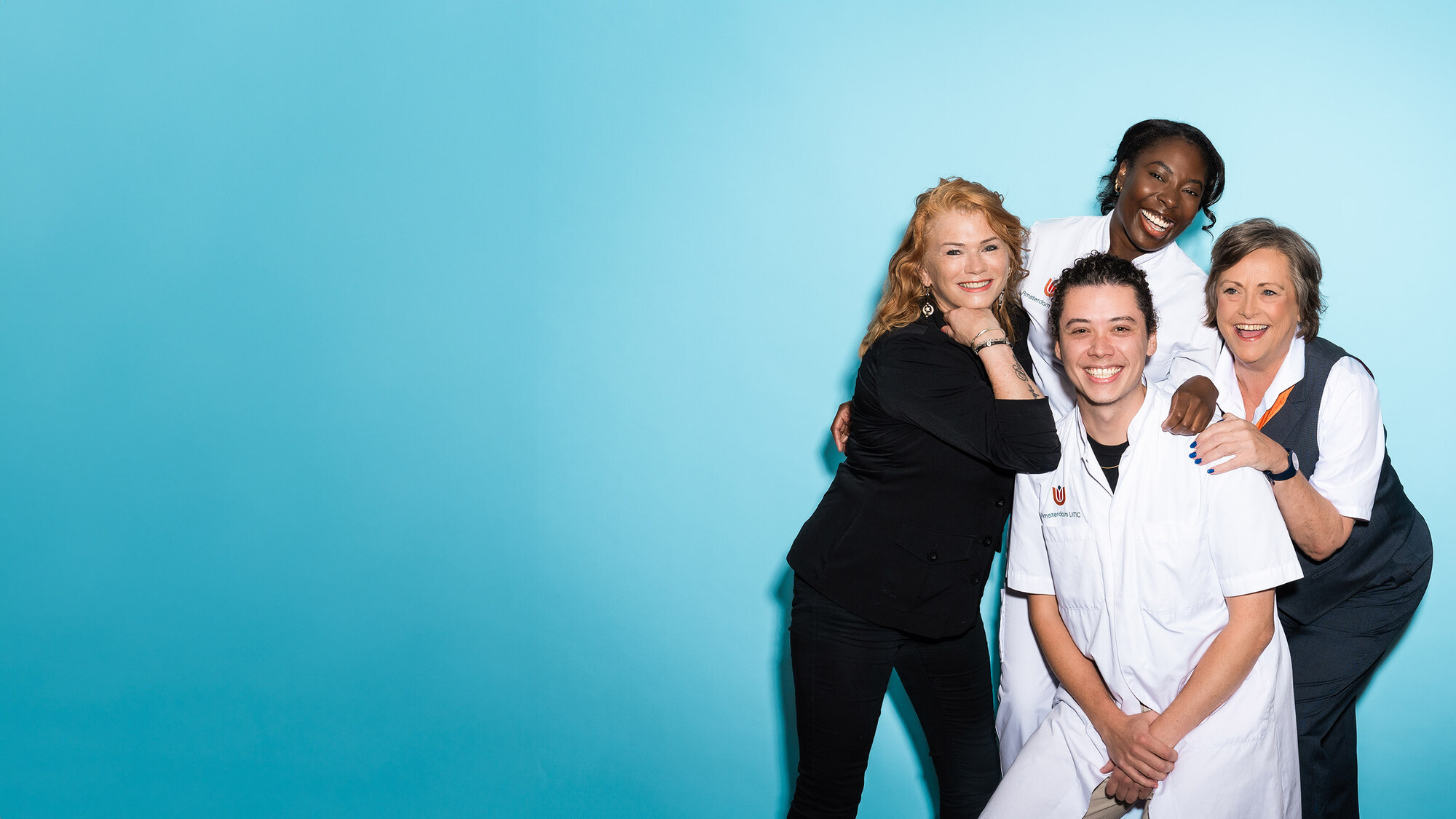
PhD-student in cellular neuroscience
As a PhD student, you will be working on a project called "Disease mechanisms and intervention strategies for SNAREopathies". We use technology to produce human neurons and create human neuronal networks in vitro that severe mental disorders, such as the model SNAREopathies are a diverse group of brain disorders caused by mutations in eight genes that together drive the secretion of chemical signals in the brain. SNAREopathies are characterized by severe developmental delay, intellectual disability, motor problems and often epilepsy.
Currently we have no cure for these patients beyond seizure control. This project aims to characterize the cellular disease mechanisms for SNAREopathies, especially for the most prevalent group (mutations in STXBP1), and to design intervention strategies.
Our research is developed within the framework of a European consortium, ESCO, where scientists, clinicians, patient families and industrial partners work together to promote research, therapy development and trial readiness for STXBP1-related disorders.
Within this framework, you will work together in a team of basic scientists, building on previous studies in the department that have established genomic, proteomic and cellular changes in SNAREopathy cell models, in induced pluripotent stem cell (iPSC)-derived neurons from SNAREopathy patients.
The key objectives for this project are:
- To upscale and multiplex assays to quantify STXBP1 mRNA and analyze the regulation of STXBP1 expression.
- To test candidate intervention strategies that upregulate STXBP1 expression.
- To establish cellular phenotypes in patient-derived neurons that generalize over different patients.
- To test candidate intervention strategies that normalize these phenotypes. In addition to these core activities, you will perform bioinformatic analyses using your own data and large public data resources and integrate your findings with clinical data (symptoms, EEG, etc).
Finally, you will contribute to other activities of the STXBP1 team, including interactions with clinicians and patient families, supervising BSc/MSc students during internships, contribute to teaching activities (10%), organizing outreach activities, and organizing and participating in international meetings.
The department also performs collaborative research with large biotech/pharma companies on SNAREopathies and new therapeutic strategies will be developed together with these and our own spin out company Neurospector. All the methodology, cell models, equipment, analysis software and viral vectors are available from the start of the projects.
You hold or will soon obtain a master’s degree in (Bio)physics, (Bio)chemistry or (Medical) Biology, preferably with hands-on experience in cellular research, and a strong motivation to pursue a career in science. The ideal candidate would have:
- An eye for detail.
- Previous lab experience: Hands-on experience in laboratory techniques builds confidence and competence, allowing for efficient execution of experiments and quicker troubleshooting.
- The ability to critically analyze scientific literature. This skill enables you to identify gaps in knowledge, design relevant experiments, and stay informed about advances that could influence your research direction.
- Interest and understanding of current research trends in neuroscience. Being up to date with the latest findings and technologies helps position your work within the broader scientific context and drives innovative approaches.
- Persistence in the face of experimental setbacks. Research often involves trial and error; resilience is essential to push through challenges and maintain motivation toward meaningful discoveries.


- A flying start to your career in scientific research.
- Plenty of room for your drive to shape tomorrow's healthcare.
- Working on large-scale and in-house research, with motivated colleagues from all over the world.
- You will be employed by Amsterdam UMC Research BV.
- A contract for 12 months, with the intention to extend for a total of 4 years. The Guideline PhD contract applies to this vacancy.
- The start date is as soon as possible, but no later than December 1, 2025.
- Salary scale OIO: € 3.108 to € 3.939 gross based on full-time employment (depending on education and experience) and a year-end bonus of 8.3%. Calculate your net salary here.
- Holiday hours: 190.4 per year for fulltime and a possibility to save additional hours.
- Pension accrual with BeFrank, a modern, comprehensible and fairly priced pension.
- For >7 km each way, 100% reimbursement for public transport travel costs and, for private transport, €0.18 per km up to a maximum of 40 km each way.
- Do you prefer walking or cycling? Take advantage of our good bike scheme. Moreover, you will receive a reimbursement of €0.18 per km.
Watch this video with more information about joining Amsterdam UMC Research BV.
Amsterdam UMC Research BV supports non-profit scientific research. In doing so, we provide researchers with everything they need to excel. Our principal investigators (PIs) and project leaders offer support in the field of project management, finance and human resources. In medical scientific research projects, legal support is also provided.
Watch the video to find out more.
The Functional Genomics (FGA) department is an ambitious and close-knit team of around 60 staff members from diverse international backgrounds. The department consists mainly of (young) researchers who share a strong drive to understand the brain and its underlying mechanisms. Our research spans from fundamental molecular and cellular neuroscience to translational projects with clinical partners, creating a dynamic link between basic science and patient-oriented research. FGA offers a stimulating, collaborative environment where team members are encouraged to exchange ideas, support each other’s projects, and develop professionally. You can read more about our work at fga.cncr.nl.
Are you interested in this position? Please apply via the application button and upload your curriculum vitae and cover letter. Applications received by e-mail will not be processed.During the publication period, applications will be handled continuously. If the vacancy is filled, it will be closed prematurely.
If you have any questions about this position, please feel free to contact prof. Matthijs Verhage at matthijs@cncr.vu.nl.
For more information about the application procedure, please contact Rhiannon Sandfort, recruitment advisor, at r.e.sandfort@amsterdamumc.nl.
A reference check, screening and hiring test may be part of the procedure. Read here whether that applies to you. If you join us, we ask you for a VOG (Certificate of Good Conduct).
Internal candidates will be given priority over external candidates in case of equal suitability.
Acquisition in response to this vacancy will not be considered.

